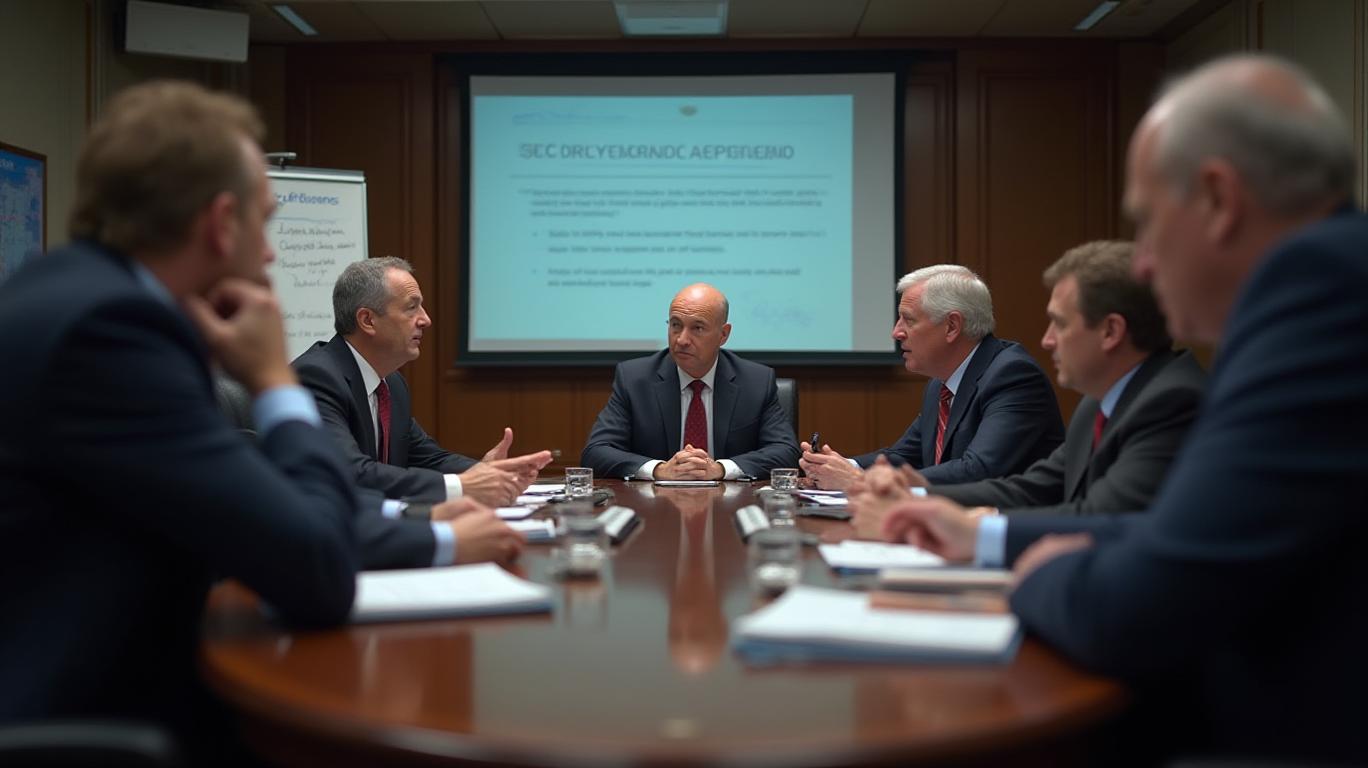SEC's Crypto Task Force Meets to Revamp Regulations
The U.S. Securities and Exchange Commission’s (SEC) crypto taskTASK-- force convened its first public meeting on Friday, focusing on the application of securities laws to digital assets. This meeting comes as part of the broader effort by the Trump administration to revamp cryptocurrency regulations. The roundtable discussion included notable figures such as John Reed Stark, former chief of the SEC’s Office of Internet Enforcement, Miles Jennings, general counsel for Andreessen Horowitz’s crypto arm, a16z, and former SEC Commissioner Troy Paredes. The task force, led by Republican SEC Commissioner Hester Peirce, is tasked with formulating rules and guidance for the crypto sector.
Peirce emphasized that the commission’s approach to crypto regulation is undergoing a significant shift, marking a new beginning. The crypto industry has long been at odds with regulators over the interpretation of federal securities laws as they apply to digital assets. Many in the industry argue that crypto tokens are more akin to commodities rather than securities. If tokens are classified as securities, firms would be required to register with the SEC and disclose certain information to investors.
President Donald Trump, who has positioned himself as a "crypto president," has pledged to reverse the industry clampdown that occurred under President Joe Biden’s SEC. The SEC under Biden had taken legal action against several crypto companies, including CoinbaseCOIN-- and Kraken, alleging violations of its rules. The new leadership at the SEC has agreed to withdraw or suspend many of these cases, signaling a more lenient approach to the industry.
During the meeting, the task force explored whether crypto tokens necessitate a new, distinct regulatory framework separate from how the SEC supervises traditional securities such as equities. Jennings advocated for a "technology-neutral" approach by the SEC, drawing a comparison between a system like ethereum and owning equity in a company like AppleAAPL--. This perspective suggests that the regulatory framework should not be biased towards any particular technology but should instead focus on the underlying principles of securities regulation.
However, concerns were raised by Democratic SEC Commissioner Caroline Crenshaw about the potential risks of easing regulations for cryptocurrencies. Crenshaw warned that allowing cryptocurrencies to function under a unique regime could weaken regulatory protections for that category and potentially have a negative domino effect on other market areas protected by the same laws. This highlights the delicate balance between fostering innovation and ensuring investor protection.
This inaugural roundtable of the task force aligns with Trump’s broader efforts to overhaul cryptocurrency policies. Earlier this month, Trump issued an executive order to establish a strategic reserve of cryptocurrencies and organized a summit for industry leaders at the White House. These actions underscore the administration’s commitment to integrating cryptocurrencies into the broader financial landscape while addressing regulatory challenges.

Comprender rápidamente la historia y el antecedente de diversas monedas conocidas
Latest Articles
Stay ahead of the market.
Get curated U.S. market news, insights and key dates delivered to your inbox.

Comments
No comments yet